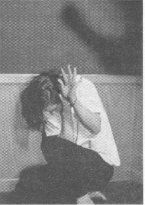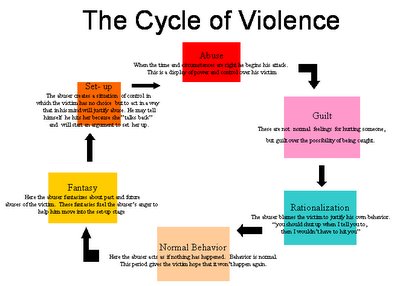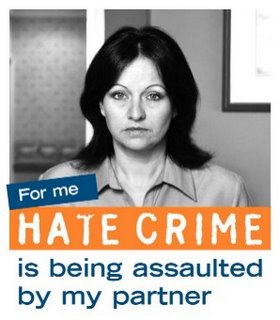Q:
What do you tell a woman with two black eyes?
A: Nothin', you done told her twice.

There are two types of calls which I am particularly passionate about: mental health consumer calls and domestic violence calls.
Mental illness another time, today the topic is DV.
I've always liked telling women to leave their abusive men. It seldom works but at least it gets them thinking. Victims of domestic violence who end up on the phone with me usually are not thinking all that clearly due to whatever recent indignity to which they have been subjected.
My job is pretty simple: get them help in the form of immediate safety and documentation. Once the information I need for this task has been collected sometimes I get to enter the bonus round. This is where the victim and I just talk.
It usually consists of a little rundown of the living situation: Any kids? Married, living together, or just dating? Family or close friends the victim can stay with? History of the abusive behavior. The basics.
Then the tack I take is always this:
1. If you are not safe in your current situation, you need to go someplace safe.
2. These things usually escalate. No matter how "sorry" the abuser is, it's going to happen again.
3. A restraining order is a great tool with which to arrest the abuser if it is violated later but it will not actually protect a victim. It's just a piece of paper. See rule number 1.

I'm absolutely shameless. I have no problem laying a huge guilt trip on folks. "If not for yourself, then for your kids. Are you going to wait around until one of them gets hurt? Do you want them to grow up without a mother? Did you know children of domestic violence abusers are 20 times more likely to abuse their partners?"
And I almost never get to talk to someone the first time they get hit. Maybe you and your loved one have had some knockdown drag-out fights and maybe you've survived to old age together with great regret. The calls I get are the victim who has been abused mentally longer and more frequently than physically but usually physically several times before ever calling for help.
The worst is when the kids call and the parents are fighting in the background. Your heart just breaks because the kids are usually 6-12 years old and profoundly scared. Their whole world, such that it is, is bad and they know it's not going to change for the better any time soon.
That's the truth too. When the police come it's not going to turn out all happy. One of the parents is usually going to jail. If that's mommy or daddy it's going to hurt, even if they know it's the best thing.
The other parent will often be at the jail later that night to bail them out. That's a tragic truth. Change is hard. Maybe the abuser is the only bread-winner. Many times, as the result in the abusive relationship, the victim doesn’t have any close friends. What else do they know? How are they going to get along by themselves? If they don't bail their abuser out it's only going to be worse when he eventually gets out of jail. It's bound to come up at dinner later.

Getting someone to go to a shelter is the hardest. No one wants to be in a shelter. It's admitting defeat and opening up your private business to complete strangers. It's a tough sell. Yet it does fulfill rule number 1: a safe place.
I'd guess that in ten years and talking to hundreds of domestic violence victims I've only actually made a difference half a dozen times. Maybe less. Yet it's immensely satisfying to have pushed someone in a safe direction, even if they drift back into danger sooner or later.
What I haven’t figured out is how to get more folks to call. Do you have any idea how many gays and lesbians are in physically abusive relationships? Neither do I because they are less likely to call. It seems like there are a disproportionate amount of physically abusive lesbian relationships but I have not done any scientific studies. If one feels oppressed by society one is not likely to call the government to help.

Ditto victims who have very little ability to speak English, victims who come from cultures which are very patriarchal, and victims who are disabled.
And one thing I try to remember and try to impress upon my recruits is that it will only take one bad experience to sour the whole relationship. If a victim calls for help and doesn’t get it, they are not going to call back.
Those victims and their kids are in for a world of hurt.
If you are reading this and are being physically abused, get out. Not "soon" -- now. You didn't ask for it and there are no "good reasons" to abuse someone. No amount of being sorry can fix it and next time it will be worse. Do you want to get killed in front of your kids? Do you? And if you won't do it for yourself or your kids then do it for me; I'm going to worry about you if you are not in a safe place tonight.
I told you I was shameless.
~~
Photos:
Crouching Woman
Cycle of Violence
Hate Crime
Then and Now
Digital Violence










